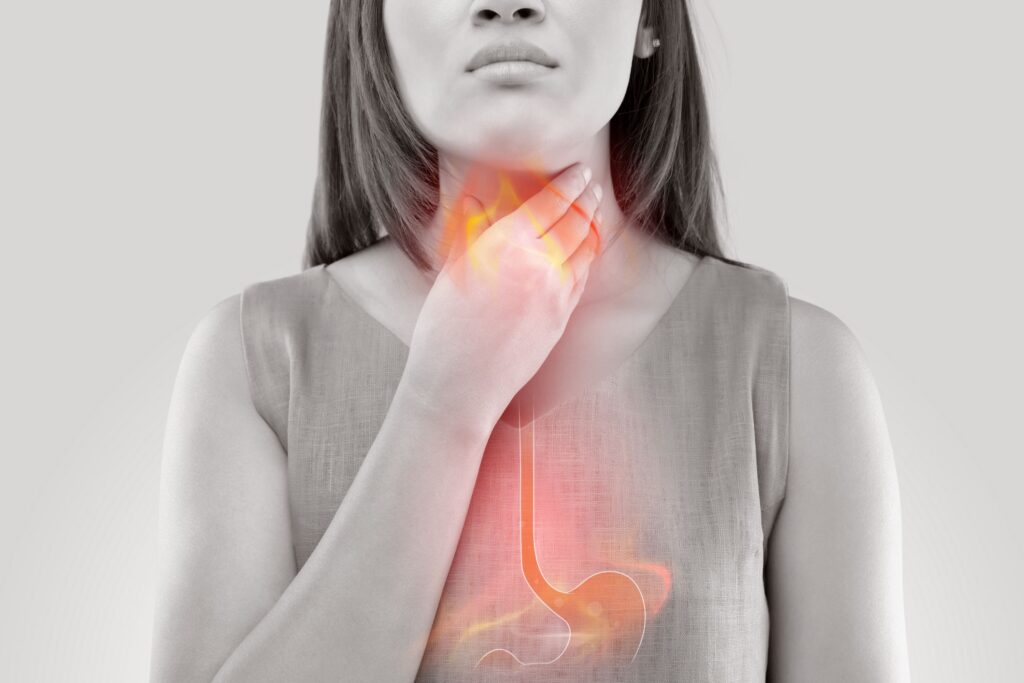
Unveiling the Hidden Dangers of Acid Reflux: Beyond the Burn
Acid reflux is a common ailment, with its hallmark symptoms being a burning sensation in the chest known as heartburn. But beneath this surface issue lies a host of potential complications that extend far beyond discomfort. In this comprehensive exploration, we’ll unpack the lesser-known risks associated with acid reflux, exploring how it can evolve from an occasional annoyance into a chronic and dangerous condition.
Acid Reflux 101: More Than Just Heartburn
Heartburn, characterized by the uncomfortable burning sensation behind the sternum, is the most familiar face of acid reflux. Yet, it only scratches the surface. Acid reflux, also known as gastroesophageal reflux disease (GERD), occurs when stomach acid flows back up into the esophagus. While occasional reflux is common and typically harmless, chronic cases can wreak havoc on the body.
One of the immediate dangers of recurring acid reflux is esophagitis, a condition where the lining of the esophagus becomes inflamed, potentially leading to bleeding or ulcers. Beyond the esophagus, the acid can also reach the lungs, causing bronchitis, pneumonia, or a worsening of asthma symptoms. This widespread impact often catches sufferers off guard, as they may not immediately connect these issues to a seemingly benign reflux.
Silent Reflux and its Perils
Not all acid reflux manifests with the telltale heartburn symptoms. There exists a variant known as ‘silent reflux’ or laryngopharyngeal reflux (LPR), where the stomach acid reaches the upper part of the esophagus and the back of the throat without causing heartburn. This type is particularly insidious because the damage accumulates without the same warning signs, and patients may end up treating symptoms without understanding the root cause.
LPR can result in a range of silent symptoms, including persistent sore throat, hoarseness, chronic cough, and difficulty swallowing. The lack of obvious discomfort can lead to a delay in diagnosis and treatment of this often-recurring assault on the throat, making the long-term consequences even more severe.
The Corrosive Effect on the Throat and Lungs
When stomach acid regurgitates up the throat, it doesn’t just sit there – it actively damages delicate throat tissues. Chronic exposure to acid can have devastating effects on the throat and vocal cords, leading to a condition called ‘Barrett’s esophagus.’ This complication is a precursor to esophageal cancer, one of the fastest-growing cancers in the Western world.
The link between long-term GERD and esophageal cancer is well-established, with GERD being a significant risk factor. It’s a stark reminder that the seemingly benign acid reflux can, over time, transform into a life-threatening condition if left unchecked.
In addition to affecting the esophagus, reflux can have dire consequences for the lungs. Aspiration, where stomach acid is inhaled into the lungs, poses serious health threats. Chronic aspiration can lead to asthma, recurring lung infections like bronchitis and pneumonia, and even pulmonary fibrosis, a scarring of the lungs’ delicate tissues that can be a precursor to lung cancer.
The Cardiovascular Concerns
Recent studies have raised an alarming potential association between GERD and heart health. While the exact nature of this link is not fully understood, those with chronic reflux seem to have a higher risk of developing heart issues such as atherosclerosis or hardening of the arteries.
The theory is that the persistent inflammation caused by the backwash of acid can also affect the heart, creating a fertile environment for cardiovascular diseases. This adds another layer of complexity to the management of GERD, as it’s no longer just a gastrointestinal concern but one with implications for the entire cardiovascular system.
Immediate Relief vs. Long-Term Solutions
Tackling acid reflux is not just about alleviating immediate discomfort. While many over-the-counter or prescription medications provide relief by neutralizing stomach acids or reducing their production, these are short-term fixes. There is also a growing concern about the long-term use of some of these medications, especially proton pump inhibitors (PPIs), which have been associated with various health risks, including an increased susceptibility to stomach infections, kidney disease, and potential nutritional deficiencies.
For a lasting solution, lifestyle changes are pivotal, such as maintaining a healthy weight, eating smaller, more frequent meals, avoiding trigger foods, not lying down immediately after eating, and elevating the head of the bed if night-time reflux is a particular concern. Behavioral modifications, such as quitting smoking and moderating alcohol consumption, can also significantly improve symptoms.
Integrative and Preventative Approaches
Looking beyond conventional medicine, integrative Health approaches can offer an array of non-pharmacological interventions, such as acupuncture, herbal remedies, and stress-reduction techniques. For prevention, focusing on a diet that’s rich in whole foods, high in fiber, and low in fat can be beneficial. There’s growing evidence to support the Mediterranean diet, with its emphasis on vegetables, fruits, nuts, and lean proteins, as a means to mitigate GERD symptoms.
Engaging in regular physical activity not only helps with weight management but also seems to reduce the incidence of reflux, possibly by improving gastrointestinal motility. Techniques like chewing food thoroughly and in a relaxed state can also support optimal digestion and reduce the likelihood of reflux.
Conclusion
While heartburn may seem like an occasional inconvenience, it’s crucial to recognize that acid reflux is a multifaceted condition with considerable risks to long-term health. Understanding the full spectrum of its potential effects and addressing the roots of the issue through sustainable lifestyle changes, preventative measures, and holistic care is the best defense we have against the hidden dangers of acid reflux. For those suffering in silence with LPR, and even those without the overt signs of GERD, seeking medical attention and exploring comprehensive treatment is not just a proactive step but a potentially life-saving one. For more health related articles, visit www.SamHoustonHeart.com.

